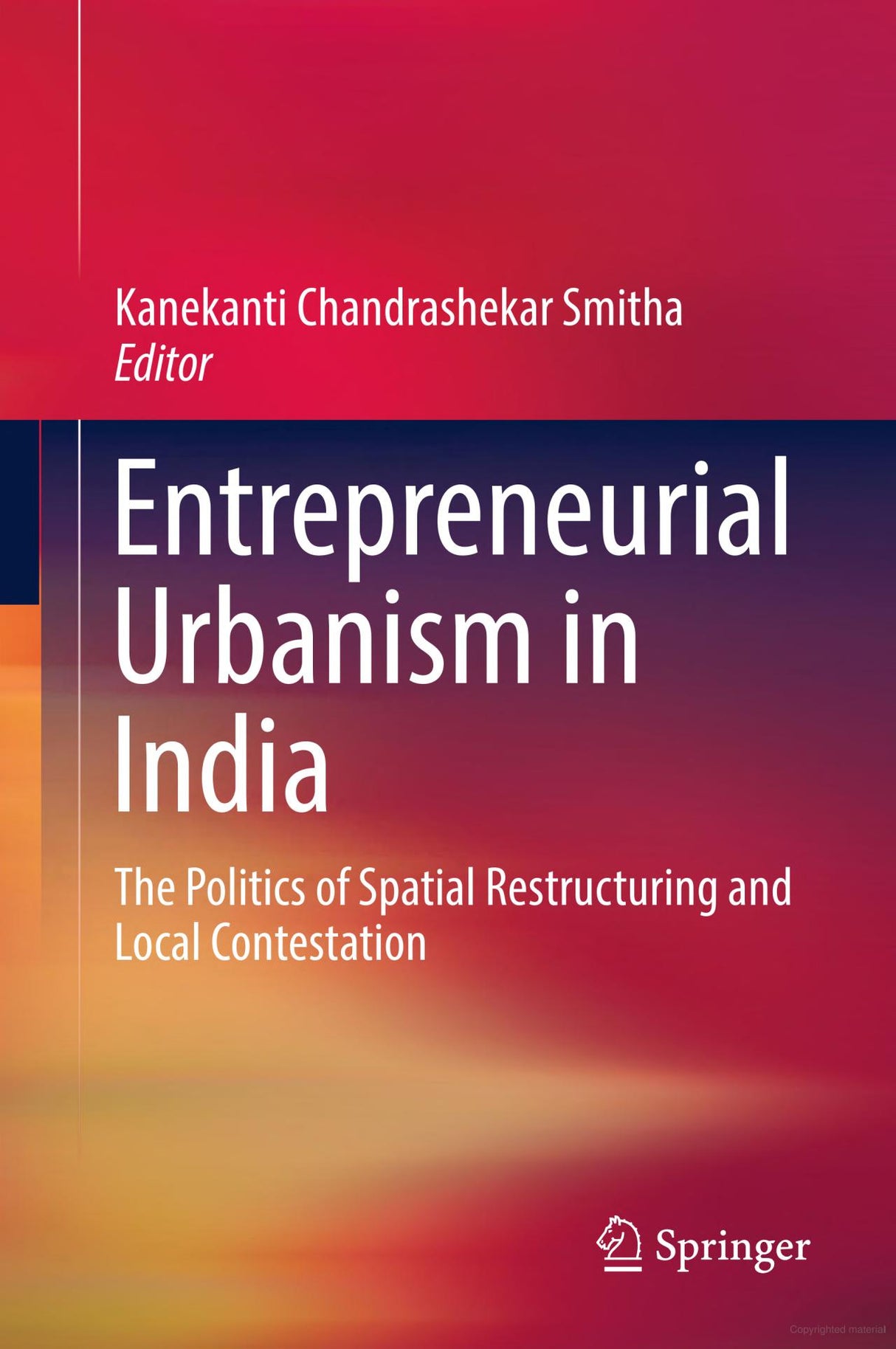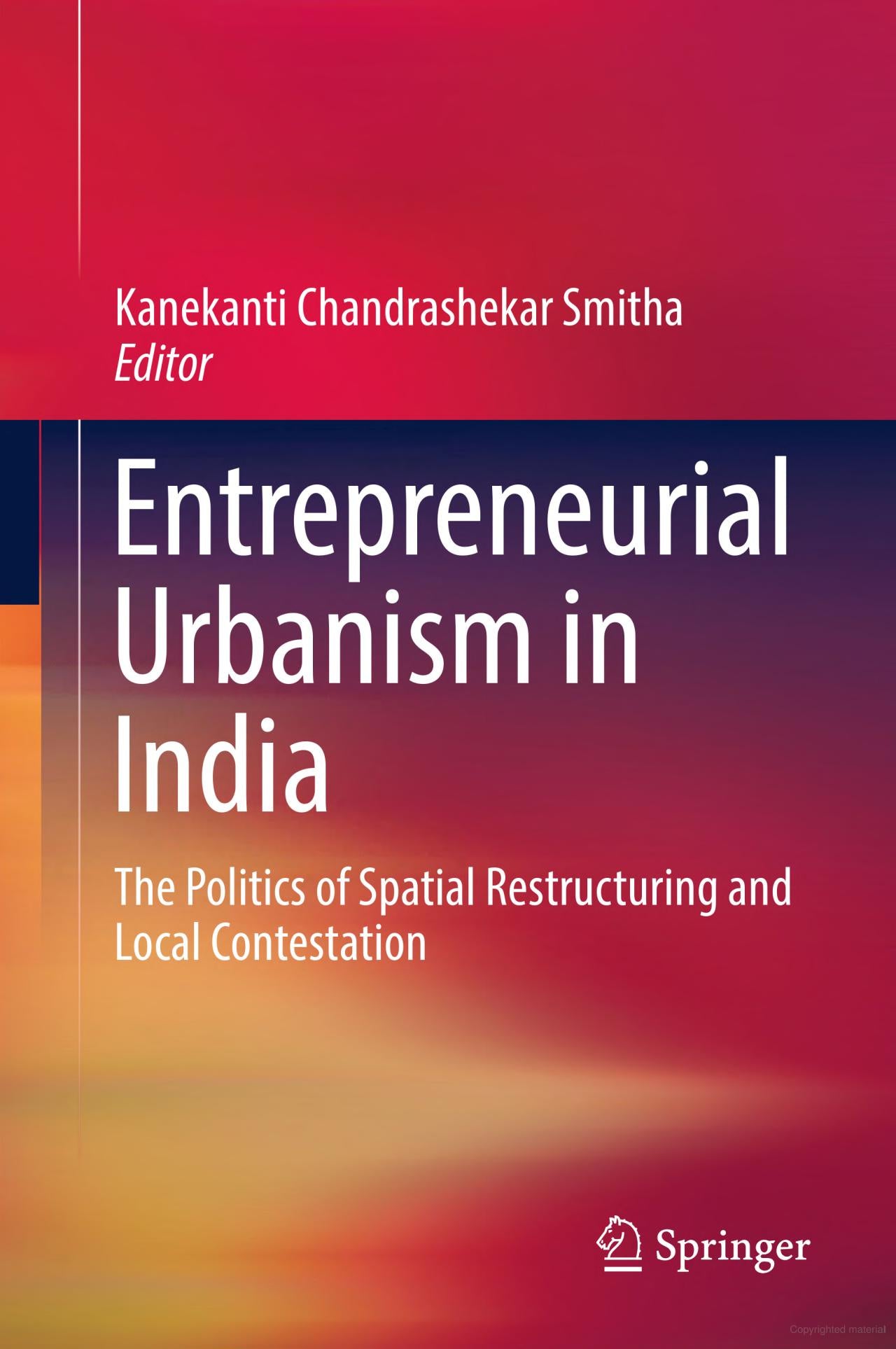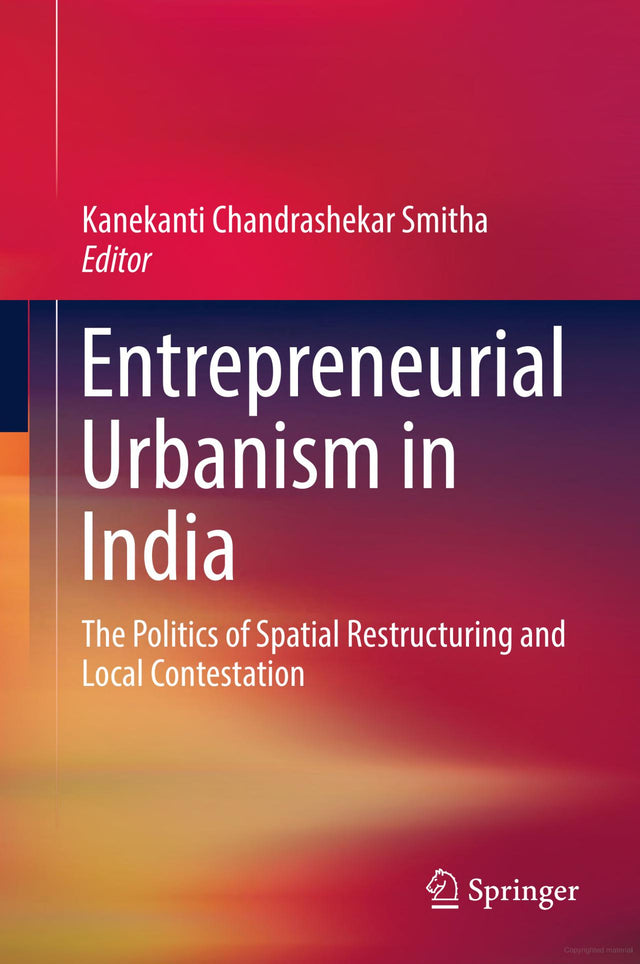ENTREPRENEURIAL URBANISM IN INDIA: THE POLITICS OF SPATIAL RESTRUCTURING AND LOCAL CONTESTATION
ENTREPRENEURIAL URBANISM IN INDIA: THE POLITICS OF SPATIAL RESTRUCTURING AND LOCAL CONTESTATION is backordered and will ship as soon as it is back in stock.
Couldn't load pickup availability
Genuine Products Guarantee
Genuine Products Guarantee
We guarantee 100% genuine products, and if proven otherwise, we will compensate you with 10 times the product's cost.
Delivery and Shipping
Delivery and Shipping
Products are generally ready for dispatch within 1 day and typically reach you in 3 to 5 days.
Book Details:
-
Author: Smitha Kanekanti Chandrashekar (Editor)
-
Publisher: Rawat Publications
-
Language: English
-
Edition: 2024
-
ISBN: 9789819701919
-
Pages: 240
-
Cover: Hardcover
About the Book
This volume critiques the rise of "entrepreneurial governance" as a dominant urban development practice in Indian metropolises, particularly in the context of neoliberal policies. As Indian cities become increasingly connected to global systems of production, finance, technology, and politics, the development of "smart" and "entrepreneurial" urban structures is rapidly reshaping both urban and peri-urban landscapes.
The book delves into the socio-economic implications of these changes, focusing on how entrepreneurial governance at national, state, and local levels has altered the socio-political and spatial dimensions of cities. It discusses how the withdrawal of the state and the rise of non-state organizations in urban governance have exacerbated inequality and social exclusion. The volume also addresses the regulation of urban development projects, emphasizing the contradictions inherent in the political and institutional landscapes of entrepreneurial governance.
Drawing on diverse empirical evidence from cities like New Delhi, Mumbai, Bengaluru, and Chennai, this book is an essential read for those interested in urban politics, public policy, urban sociology, planning, architecture, and urban geography.
Contents
1. Entrepreneurial Urbanism in India: A Framework
-
K.C. Smitha
Part I: Urban Governance and Institutions
2. Introducing Urban Entrepreneurialism in India: An Analysis of Programmatic Interventions
-
Debolina Kundu and Sudhir Krishna
-
Entrepreneurial Governance in a Resilient City: Bengaluru, India
-
H.S. Sudhira
-
Part II: Political Economy of Urbanisation
4. From Hierarchy to Heterarchy: Moving Beyond Entrepreneurial Governance. Municipal Reforms Programme in Karnataka
-
Anjali Karol Mohan
-
'Speculative Spaces': The Material Practices of Urban Entrepreneurialism
-
Raman Bhuvaneswari
-
-
The Politics of Entrepreneurial Vision Group Plans and their Impact at the Local (Government) Level, Bengaluru
-
Vinay Baindur
-
Part III: Urban Inclusion and Exclusion
7. Remaking the 'mohalla': Muslim basti-dwellers and Entrepreneurial Urbanism in Mumbai
-
Qudsiya Contractor
-
Fragile Entrepreneurialism: The Mumbai Airport Slum Redevelopment Project
-
Xuefei Ren
-
-
Planning their Homes in Entrepreneurial City: The Capacities of Urban Poor and the Constraints of Public Policy
-
Swetha Rao Dhananka
-
-
Spatial Reproduction of Urban Poverty in Entrepreneurial City: Bengaluru, India
-
K.C. Smitha
About the Author/Editor
Smitha Kanekanti Chandrashekar is a Research Scientist at the Centre for Research in Urban Affairs (CRUA), Institute for Social and Economic Change, Bengaluru, India. Her research focuses on urban governance, service delivery, urban poverty, urban informality, political economy, and urban political ecology. She holds a PhD in Political Science & Public Administration from the Institute for Social and Economic Change (University of Mysore), where her doctoral research explored urban governance and service delivery in Bengaluru, particularly in the context of neoliberal urban reforms. Smitha has actively participated in various urban research projects, addressing issues such as rural-urban migration, urban deprivation, infrastructure, land governance, and the structure of Indian metropolises.





